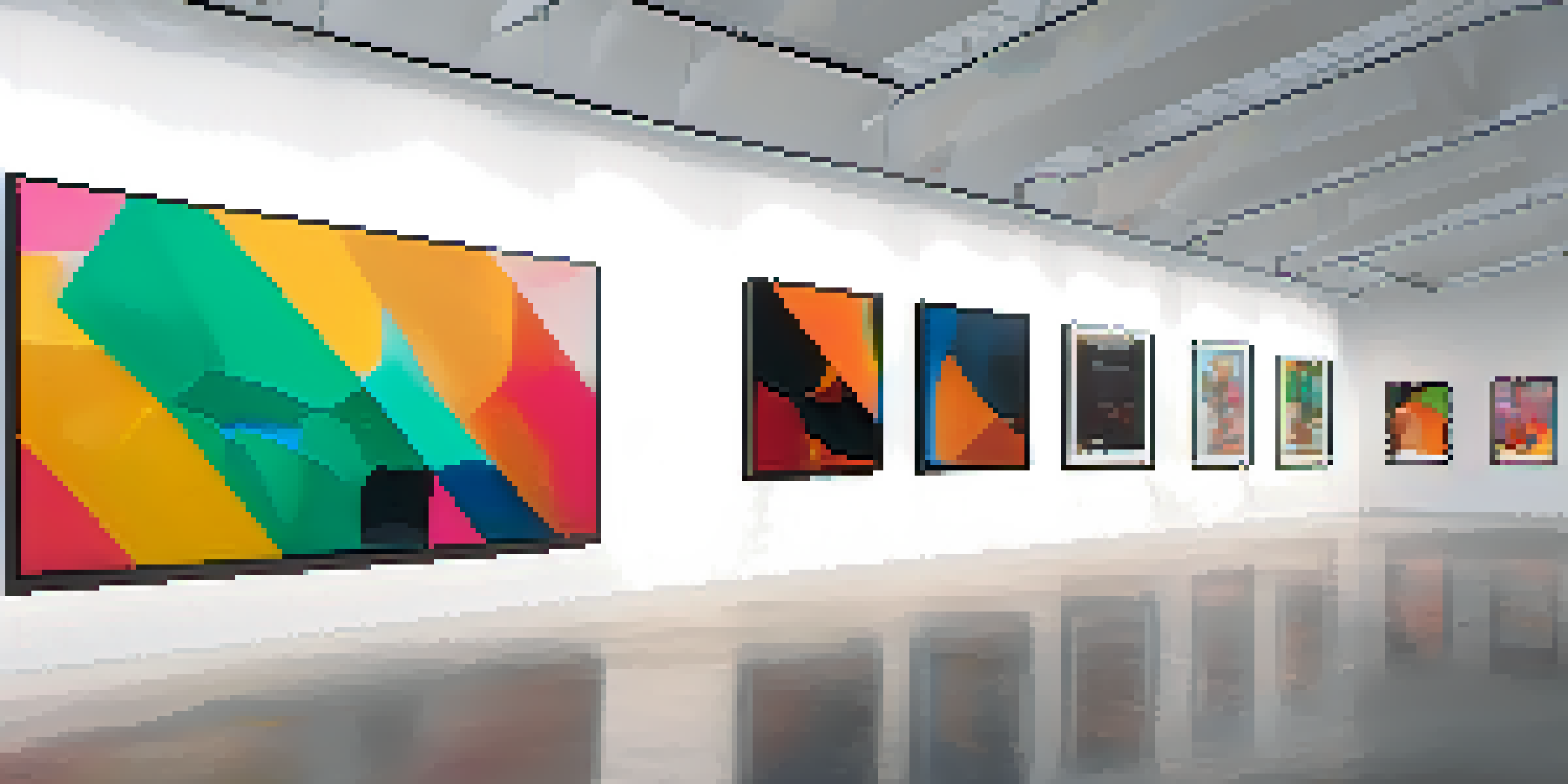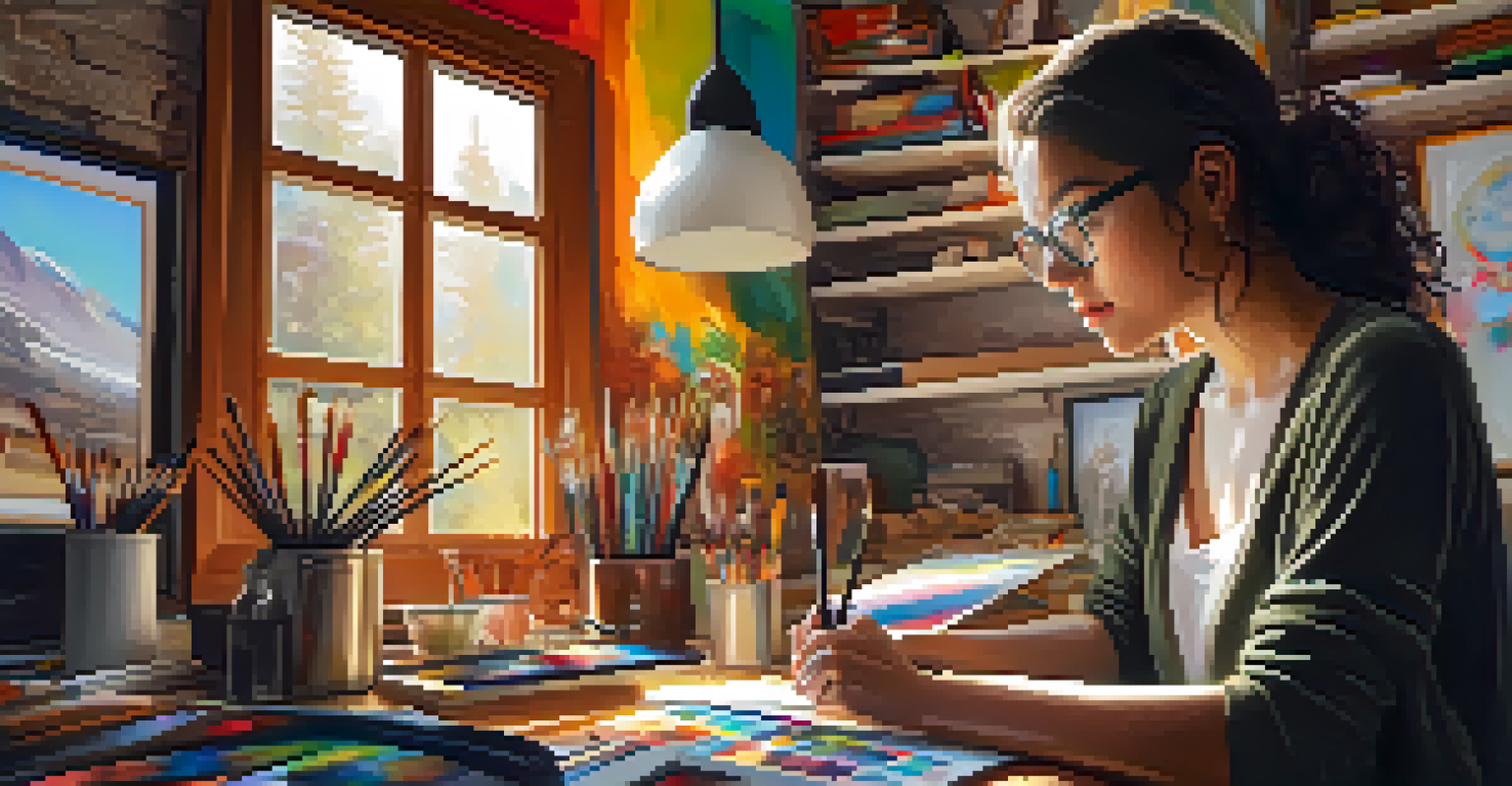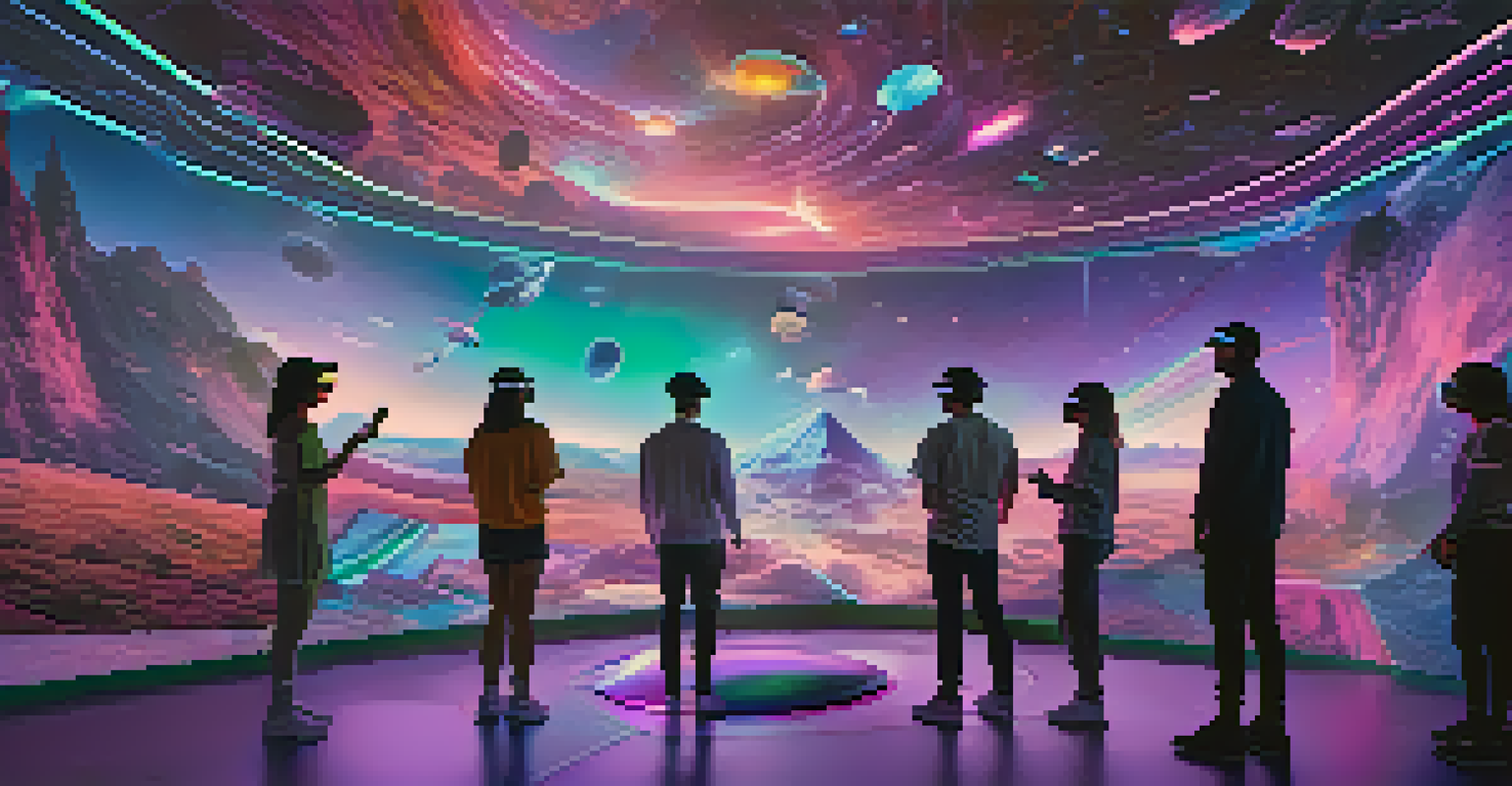From Collectors to Creators: NFTs Transforming Social Dynamics

Understanding NFTs: The New Digital Collectibles
Non-fungible tokens (NFTs) have taken the digital world by storm. Unlike cryptocurrencies like Bitcoin, which are interchangeable, NFTs represent unique digital assets. Think of them as digital collectibles—one-of-a-kind items that can be anything from art to music to virtual real estate. This uniqueness has sparked a new era of digital ownership and creativity.
The greatest artists are not those who wait for inspiration to strike, but those who create opportunities for inspiration to flow.
The rise of NFTs has shifted how we perceive value in the digital realm. Just as collectors have traditionally sought rare stamps or coins, today's digital collectors are now hunting for unique NFTs. This transition signifies a broader cultural change where digital possessions hold tangible value and can even appreciate over time.
In a way, NFTs have transformed the collector's mindset. Instead of merely accumulating, collectors are now curators, shaping their own galleries of digital art and experiences. This newfound role empowers individuals to not only enjoy their collections but also share and monetize them in innovative ways.
The Creator Economy: Empowering Artists and Innovators
One of the most exciting aspects of NFTs is their potential to empower creators. Artists, musicians, and other innovators can now mint their own NFTs, bypassing traditional gatekeepers like galleries and record labels. This direct-to-consumer model allows creators to retain more of their earnings while connecting with their audience on a personal level.

For instance, consider the musician who releases an exclusive track as an NFT, offering fans a chance to own a piece of their artistry. This not only generates revenue but also builds a community around the creator. Fans are no longer just passive listeners; they become active participants in a creator's journey.
NFTs Empower Creators Directly
NFTs enable artists and innovators to connect with their audience directly, bypassing traditional gatekeepers and retaining more earnings.
Moreover, the NFT space encourages collaboration among creators. Artists can team up to create joint projects, blending their styles and fanbases. This collaborative spirit fosters creativity and innovation, leading to fresh ideas that challenge the status quo of traditional art and music industries.
Changing Social Dynamics: From Ownership to Community
As NFTs gain popularity, they are reshaping social dynamics within digital communities. The sense of ownership associated with NFTs creates a shared bond among collectors and creators. When someone buys an NFT, they feel a connection not just to the item but to the wider community of like-minded individuals, fostering camaraderie and collaboration.
Technology is best when it brings people together.
This communal aspect is evident in online platforms where creators and collectors interact. Social media channels, Discord groups, and NFT marketplaces have become hubs for discussion, collaboration, and sharing experiences. These platforms encourage networking and support, making participants feel part of a vibrant ecosystem.
Ultimately, the rise of NFTs is transforming how we connect with one another. It’s no longer just about buying and selling; it’s about building relationships and creating shared experiences. This shift towards community-centric engagement marks a significant evolution in how we view social interactions in the digital age.
Decentralization: Power Back to the People
Decentralization is a key feature of the NFT ecosystem, shifting power away from traditional institutions. With blockchain technology at its core, NFTs allow artists to control their work without relying on galleries or record labels. This freedom enables creators to experiment and innovate, ultimately enriching the cultural landscape.
By eliminating intermediaries, NFTs democratize access to art and creativity. Anyone with an internet connection can buy, sell, or create NFTs, opening doors for diverse voices and perspectives. This inclusivity fosters a richer artistic environment and encourages emerging talents to pursue their passions.
Community Focus in Digital Ownership
The rise of NFTs fosters a sense of community among collectors and creators, emphasizing shared experiences and collaboration.
Moreover, the ability to trace ownership and provenance through blockchain enhances transparency. This secure system builds trust among buyers and sellers, ensuring that creators receive proper credit and compensation for their work. In this way, decentralization not only empowers individuals but also creates a fairer marketplace.
The Role of Technology in NFT Evolution
Technology plays a crucial role in the evolution of NFTs, enabling a seamless experience for creators and collectors alike. Blockchain technology ensures secure transactions, while smart contracts automate processes such as royalties, ensuring creators are compensated every time their work is sold. This innovative use of technology enhances the overall ecosystem.
Additionally, advancements in digital art tools and platforms make it easier for creators to produce and showcase their work. Artists can experiment with various mediums, from 3D modeling to augmented reality, pushing the boundaries of creativity. This technological synergy fuels a continuous cycle of innovation within the NFT space.
As technology continues to evolve, so too will the NFT landscape. New tools and platforms will emerge, providing even more opportunities for creators to engage with audiences. This dynamic relationship between technology and creativity will shape the future of art, music, and beyond, keeping the NFT movement vibrant and fresh.
Challenges and Criticisms of the NFT Space
Despite the excitement surrounding NFTs, they are not without challenges and criticisms. Environmental concerns regarding the energy consumption of blockchain networks have raised eyebrows. Many are advocating for more sustainable practices within the NFT space, urging creators and platforms to consider their ecological footprint.
Another notable challenge is the prevalence of copyright issues. As NFTs open up new avenues for ownership, questions about intellectual property rights become more prominent. Ensuring that creators' rights are protected while allowing for innovation is a delicate balance that the industry must navigate.
Decentralization Brings Fairness
Blockchain technology decentralizes control, allowing creators to manage their work independently and ensuring transparent transactions.
Additionally, the speculative nature of the NFT market can lead to volatility, making it a risky investment for collectors. As prices fluctuate dramatically, some fear that the bubble may burst, leaving many with devalued assets. Addressing these challenges is crucial for the long-term sustainability and credibility of the NFT ecosystem.
The Future of NFTs: A New Era of Creativity
Looking ahead, the future of NFTs promises exciting possibilities for both creators and collectors. As the technology matures and more people become aware of its potential, we can expect to see an even broader range of digital assets emerge. From interactive experiences to virtual reality art galleries, the creative landscape will continue to expand.
Moreover, NFTs are likely to be integrated into various sectors beyond art and music, such as gaming, fashion, and education. Imagine owning a virtual outfit in a game or receiving exclusive educational content as an NFT. The potential applications are limitless, paving the way for new forms of engagement and monetization.

In essence, NFTs represent a cultural shift towards valuing creativity and ownership in the digital age. As we embrace this shift, we can look forward to a future where creators thrive, communities flourish, and the boundaries of artistic expression are continually redefined.